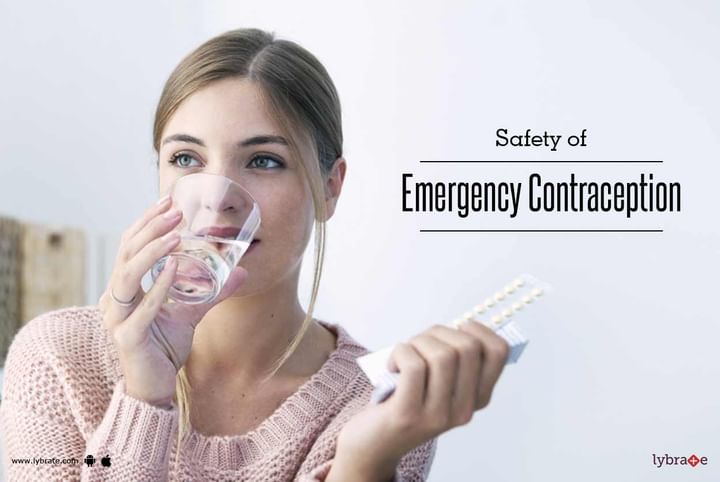Safety of Emergency Contraception
Emergency is helpful in preventing pregnancies post unprotected sexual activity. It can be used in case of contraceptive failure, in case of sexual assault, incorrect use of contraceptives and unprotected sex.
Emergency contraception can be done by three methods. These are emergency contraceptive pills, combined oral contraceptive pills and copper intrauterine devices.
The copper IUD is considered to be one of the most effective forms of emergency contraception, when it is inserted within 5 days of unprotected sexual activity.
However, the emergency contraceptive pill regimen as per WHO is:
-
1 dose of levonorgestrel 1.5 mg, or 1 dose of ulipristal 30 mg, taken within 5 days (120 hours) of unprotected intercourse
-
The Yuzpe regimen which consists of 2 doses of combined oral contraceptive pills
What is Emergency Contraception?
Emergency contraception is usually referred to as the contraception which is used to prevent a pregnancy within the first 5 days after an unprotected sexual activity. It is used post failures of contraception, coerced unprotected sex, rape or misuse of contraception.
Emergency contraception is only effective in the first few days after an intercourse and before the egg has released from the ovary, and before there is fertilization between the egg and the sperm. The emergency contraception can do no harm to an interrupted pregnancy and a developing embryo.
Who needs emergency contraception?
Any girl or woman who is at her reproductive age might need an emergency contraception in case of an unprotected sexual intercourse.
Uses:
- Breakage, slippage or displacement of barrier methods
- Three or more missed OCPills for more than 12 hours
- Missed Mini pill for more than 3 hours
- Missed Desoestrel pills for more than 12 hours
- DMPA injections taken more than 2 weeks late
- Miscalculated dates of last period and present ovulation side effects
These are meant only for emergency contraception and NOT AS A REGULAR CONTRACEPTIVE. It involves pumping of a hormone inside your body at levels which are 5 times higher than normal. hence excessive and unnecessary use may cause irregularity in the period cycles and an adverse effect on the menstrual health over a period of time. Ideally it should be taken under guided medical supervision.
In what situations should emergency contraception be used?
Emergency contraception can be used after a sexual intercourse. These include:
-
In case of no use of contraceptives
-
If it is a case of rape or coerced sex, where the woman was not protected
-
When there is a contraceptive failure, like
-
breakage
-
incorrect use or slippage
-
OCPILLS,
-
mini pills
-
DMPA
-
-
3 or more missed combined oral contraceptives, progestogen-only pill (minipill) taken more than 3 hours late, desogestrel-containing pill 12 hours or more, norethisterone enanthate (NET-EN) progestogen-only injection taken more than 2 weeks late
-
Delay in placing or dislodgement or early removal of the skin patch or the hormonal ring
-
Breaking, dislodgement, tearing or early removal of cervical cap or diaphragm
-
Failure of withdrawal that is ejaculation the external genitalia or vagina
-
The spermicide tablet failure
-
Miscalculating the periods, failure from using a barrier on the fertile days
-
Expulsion of an intrauterine contraceptive device (IUD)
Methods of Emergency Contraception:
There are three emergency contraception methods:
-
Copper-bearing intrauterine devices (IUDs)
-
Emergency contraception pills (ECPs)
-
Combined oral contraceptive pills or the Yuzpe method



+1.svg)
